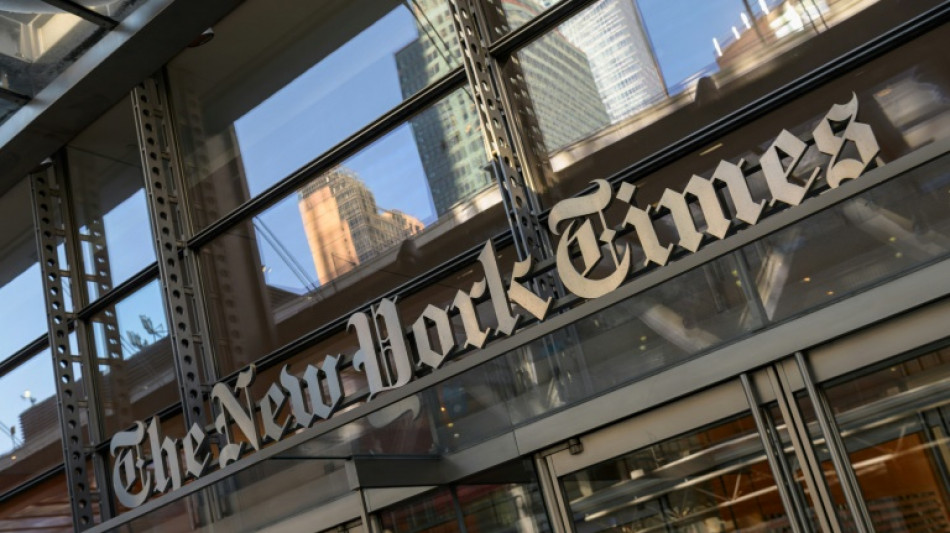
-
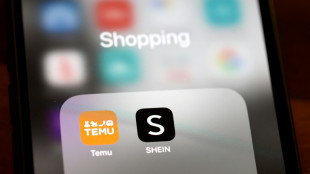 France targets cheap Chinese goods with fee on packages
France targets cheap Chinese goods with fee on packages
-
Amnesty accuses Israel of 'live-streamed genocide' in Gaza

-
 Japan, Philippines leaders vow to deepen security ties
Japan, Philippines leaders vow to deepen security ties
-
AstraZeneca moves some production to US amid tariff threat

-
 Shadman's ton gives Bangladesh lead in 2nd Zimbabwe Test
Shadman's ton gives Bangladesh lead in 2nd Zimbabwe Test
-
Barca's Yamal: I admire Messi but don't compare myself to him

-
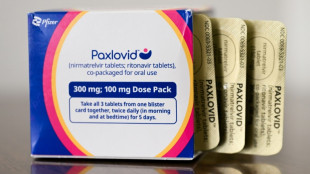 Pfizer profits dip on lower Paxlovid sales
Pfizer profits dip on lower Paxlovid sales
-
French right-wing TV host fans talk of presidential bid
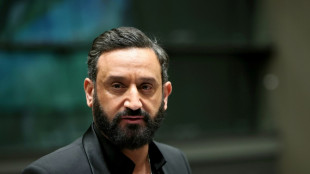
-
 Two men in court charged with 'moronic' felling of famed UK tree
Two men in court charged with 'moronic' felling of famed UK tree
-
Amnesty accuses Israel of 'live-streamed genocide' against Gazans

-
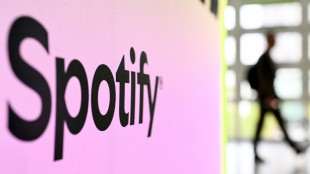 Spotify posts record profit in first quarter
Spotify posts record profit in first quarter
-
Sciver-Brunt named as England women's cricket captain

-
 GM profits top estimates, but automaker reviewing outlook due to tariffs
GM profits top estimates, but automaker reviewing outlook due to tariffs
-
Stock markets edge up as Trump softens tariff pain for auto firms

-
 Pricier trainers? Adidas warns on US tariff impact
Pricier trainers? Adidas warns on US tariff impact
-
Spain, Portugal rule out cyberattack for massive blackout

-
 Suryavanshi, 14, dubbed India's next superstar after shattering records
Suryavanshi, 14, dubbed India's next superstar after shattering records
-
Power back in Spain, Portugal after massive blackout

-
 Pakistan says it shot down Indian drone along Kashmir border
Pakistan says it shot down Indian drone along Kashmir border
-
Cardinals run the media gauntlet ahead of conclave

-
 BP profit drops 70% amid pivot back to oil and gas
BP profit drops 70% amid pivot back to oil and gas
-
Iran says fire contained after deadly blast at key port

-
 Irish rappers Kneecap deny support for Hamas, Hezbollah
Irish rappers Kneecap deny support for Hamas, Hezbollah
-
Blackout plunges Spain into chaotic night of darkness

-
 Convicted cardinal confirms he will sit out conclave
Convicted cardinal confirms he will sit out conclave
-
Kashmiris fortify bunkers anticipating India-Pakistan crossfire

-
 Adidas warns US tariffs to push up prices
Adidas warns US tariffs to push up prices
-
Markets boosted as Trump softens tariff pain for auto firms

-
 Suryavanshi, 14, dubbed 'next superstar' after batting records tumble
Suryavanshi, 14, dubbed 'next superstar' after batting records tumble
-
Australian doubles player Purcell accepts 18-month doping ban

-
 Kashmir attack unites political foes in India, Pakistan
Kashmir attack unites political foes in India, Pakistan
-
Croatia hotel toasts dizzying century of stars, sovereigns and champagne

-
 Kenya's desperate need for more snake antivenom
Kenya's desperate need for more snake antivenom
-
Les Kiss in frame with Wallabies set to name new coach

-
 Cavaliers scorch Heat, Warriors down Rockets in thriller
Cavaliers scorch Heat, Warriors down Rockets in thriller
-
Opposition wins Trinidad and Tobago election, returning Persad-Bissessar as PM

-
 Study sheds light on origin of Australia's odd echidna
Study sheds light on origin of Australia's odd echidna
-
France tries Syrian Islamist rebel ex-spokesman on war crime charges

-
 Trump boasts of 'fun' 100 days, but Americans disenchanted
Trump boasts of 'fun' 100 days, but Americans disenchanted
-
Elitist no more, caviar is turning casual
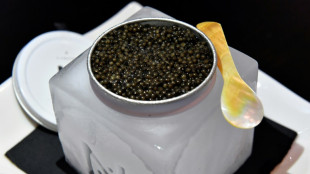
-
 Amnesty accuses Israel of 'live-streamed genocide' against Gaza Palestinians
Amnesty accuses Israel of 'live-streamed genocide' against Gaza Palestinians
-
Inter slump puts season at risk ahead of daunting Barca trip

-
 Power returns to most of Spain, Portugal after massive blackout
Power returns to most of Spain, Portugal after massive blackout
-
'I have hope': Vietnam Babylift survivor's search for birth mother

-
 US climate assessment thrown into doubt as Trump dismisses authors
US climate assessment thrown into doubt as Trump dismisses authors
-
Venezuelan president slams US over little girl's 'abduction'

-
 Hard-right upstarts eye big gains in local UK polls
Hard-right upstarts eye big gains in local UK polls
-
Skulls, smoke and spirits: Thai ceremony for the unclaimed dead

-
 Canada's Carney: political newcomer who says he's best in a crisis
Canada's Carney: political newcomer who says he's best in a crisis
-
Cavaliers scorch Heat to seal series sweep


New York Times sues OpenAI, Microsoft in copyright clash
The New York Times sued ChatGPT-maker OpenAI and Microsoft in a US court on Wednesday, alleging that the companies' powerful AI models used millions of articles for training without permission.
Through their AI chatbots, the companies "seek to free-ride on The Times' massive investment in its journalism by using it to build substitutive products without permission or payment," the lawsuit said.
With the suit, The New York Times chose a more confrontational approach to the sudden rise of AI chatbots, in contrast to other media groups such as Germany's Axel Springer or the Associated Press that have entered content deals with OpenAI.
The Times, one of the most respected news organizations in the United States, is seeking damages, as well as an order that the companies stop using its content -- and destroy data already harvested.
While no sum is specifically requested, the Times alleges that the infringement could have cost “billions of dollars in statutory and actual damages."
OpenAI and Microsoft couldn't immediately be reached for comment.
Microsoft, the world’s second biggest company by market capitalization, is a major investor in OpenAI, and swiftly implemented the powers of AI to its own products after the release of ChatGPT last year.
The AI models that power ChatGPT and Microsoft's Copilot (formerly Bing) were trained for years on content available on the internet, under the assumption that it was fair to be used without need for compensation.
But the lawsuit, filed in a federal court in New York, argued that the unlawful use of the Times' work to build artificial intelligence products created a potential rival and threatened its ability to provide quality journalism.
"These tools were built with and continue to use independent journalism and content that is only available because we and our peers reported, edited, and fact-checked it at high cost and with considerable expertise," a spokesperson for the Times said.
- Not 'transformative' -
The Times said it attempted to seal a content agreement with OpenAI and Microsoft, but that the companies maintained that their technology was "transformative" and therefore did not need a commercial arrangement.
The lawsuit said that content generated by ChatGPT and Copilot closely mimicked New York Times style and that the paper's content was given a privileged status in perfecting the chatbot technology.
It also said that content that proved to be false was sourced incorrectly to The New York Times.
"There is nothing 'transformative' about using The Times’ content without payment to create products that substitute for The Times and steal audiences away from it," the lawsuit alleged.
The emerging AI giants are facing a wave of lawsuits over their use of internet content to build their AI systems that create content on simple prompts.
Last year, "Game of Thrones" author George RR Martin and other best-selling fiction writers filed a class-action lawsuit against OpenAI, accusing the startup of violating their copyrights to fuel ChatGPT.
Universal and other music publishers have sued artificial intelligence company Anthropic in a US court for using copyrighted lyrics to train its AI systems and in generating answers to user queries.
US photo distributor Getty Images has accused Stability AI of profiting from its pictures and those of its partners in order to make visual AI that creates original images on simple demand.
With lawsuits piling up, Microsoft and AI player Google have announced they would provide legal protection for customers sued for copyright infringement over content generated by its AI.
F.Schneider--AMWN


